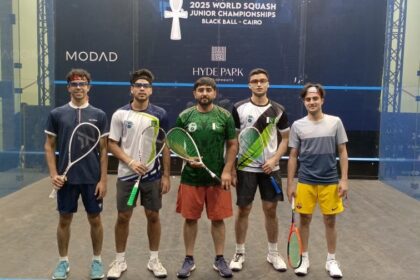Leaders of the Save Swat River Movement have voiced strong objections to the current design of the Madian Hydropower Project, stating that it is unacceptable to local communities and poses severe risks to the environment and livelihoods. They have called on authorities and the World Bank to revise the project in line with the wishes of local residents or cancel it altogether if modifications are not feasible.
At a press conference held at the National Press Club, representatives including Zubair Torwali, Inamullah Khan, Sajad, Mursaleen, and Nisar Ahmed outlined the environmental and social concerns associated with four major hydropower projects planned along the Swat River in Bahrain Tehsil, Swat district. They emphasized that these projects, which involve diverting the historic river into long tunnels, threaten not only the river’s ecosystem but also tourism, local economies, forests, weather patterns, aquatic life, and the climate of the region.
The projects in question include the Madian Hydropower Project (207 MW), Asrit Kedam Hydropower Project (229 MW), Kalam-Asrit Hydropower Project (239 MW), and Gabral Kalam Hydropower Project (88 MW). For example, the Madian project would channel the Swat River into a 12-kilometer-long tunnel before returning it to its natural course, while similar tunnels are planned for the other hydropower stations. Collectively, these projects would result in the river flowing underground for 40 kilometers between Madian and Kalam.
The Save Swat River Movement argued that local indigenous communities, particularly the Torwali, Gujar, and Gawri peoples, have not been properly consulted or given free, prior, and informed consent as mandated by international standards and World Bank policy. The proposed projects, they say, would deplete springs, increase the risk of floods and environmental disasters, and irreversibly damage the region’s natural beauty and resources. Noting that the area has experienced three major floods in the past 15 years, they stressed the heightened vulnerability due to potential ecological disruptions.
Furthermore, the group criticized the projects for not adhering to the “least-cost principle,” claiming that they would generate expensive electricity rather than affordable energy. As a result, the Madian and Gabral Kalam hydropower projects have reportedly been excluded from recent government energy planning documents.
The activists called upon provincial authorities, the World Bank, and other stakeholders to prioritize cleaner and more community-friendly alternative energy sources like solar and wind, instead of relying on coal, furnace oil, or even controversial hydropower projects. They insisted that electricity generation projects should be environmentally safe and designed with local communities’ interests and consent at the forefront. Without such considerations, they warned, the fate of the Swat River, its people, and their ancestral land would be at serious risk.











